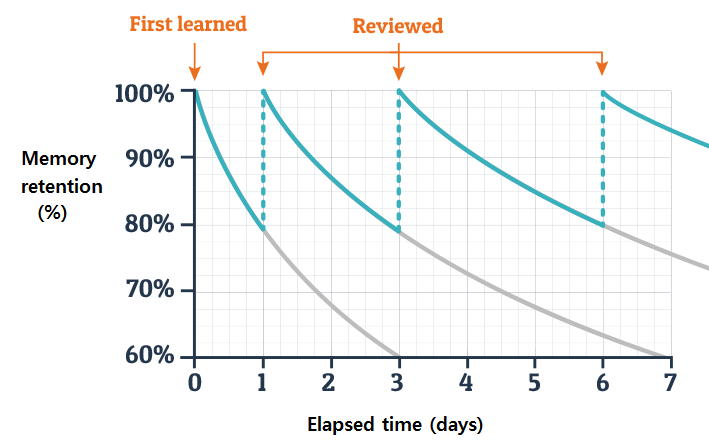Hey there 👋🏼
Let me start by throwing this out there. Half of the year has passed. It’s done. Finito.
And let’s face it, 2022 is not getting any easier than 2020 or 2021.
My initial plan was to devote this week’s issue to setting goals but I decided to throw a curve ball and focus not on setting goals but on how to achieve them.
You’ve probably heard about Pearson’s Law before:
When performance is measured, performance improves. When performance is measured and reported back, the rate of improvement accelerates.
Pearson’s Law
The whole idea is that you have 2 levels of optimisation in your execution of goals.
The first one is to measure. The second one is to make yourself accountable.
Let’s dive in.
Measuring
Imagine you set a goal today. It’s that time of the year after all.
You think about what you want to achieve, and write it down on a goal sheet or a fancy web platform.
If time goes by and you never look back to what you’ve written, never review it or measure the progress you’ve made, how likely are you to achieve the goal by the end of the year?
I say unlikely.
What Pearson’s Law says is that we should measure our progress recurrently.
This is one of the secrets. Just like when you study a topic, having your goals systematically on your radar makes your life fine-tuned to achieving them.
This brings me to the Ebbinghaus Forgetting Curve, the outcome of research created back in 1885 on the decline of memory retention over time. The forgetting curve shows how information or knowledge stored within the brain is lost over time if the individual makes no attempt to retain it.
That’s why spaced repetition works when we want to study a topic.
To me, this is the foundation of why we forget information we hear at meetings and why we keep on failing to achieve our goals.
We just forget we set them in the first place.
So how can you make sure your goals are on your radar constantly?
By setting a bi-weekly or monthly goal revision appointment with yourself you’re constantly refreshing your memory on your goals and reviewing what progress you’ve made.
You can even read your objectives every morning. Or ask yourself at the beginning of the week, “how is my week working towards my goals?”.
And at the end of the week review “how has this week put me closer to achieving my goals?”.
Small changes like this will compound and have a significant positive influence on how you progress towards your goals.
But this can be a lonely road. And that leads me to…
Accountability
The second part of Pearson’s Law is all about reporting your performance. It’s about being accountable for what you do.
According to this article on Entrepreneur, the American Society of Training and Development found that 65% of people are most likely to achieve their goals after committing to someone. This number jumps to a crazy 95% when they have recurrent meetings to check on the progress.
I’m sure you’ve witnessed this before. That’s why you see the term gym buddy being thrown around, or that you need at least two founders at startups, etc. It’s not so much about the individual performance but the bond that is created by the shared commitment makes this performance compound to levels of greatness.
You might be wondering how you can do this? What about if you’re all alone? Well, if you are a strong-willed person, motivated beyond anything average you will be able to set this goal, commit to yourself and see this goal through.
Most people, me included, need help. Need a reality check from an external person. Now, if you really can’t ask a friend, a partner or a colleague at work, worry not. The internet is here to help.
There are services like Commit Action where you can hire accountability services. On StickK you put your money where your mouth is, literally losing money if you miss the goal. The internet is filled with amazing ideas that are there to help us.
Bottom line? Commit!
Do a proper introspection and commit to what you want. Commit to the person you want to become at the end of the journey and you can be sure that you will reach your goal.
The other day I heard an interesting quote that I think goes really well with this topic.
It’s fine if you quit every now and then. What is not OK is to give up.
The act of giving up implies a lack of motivation and strength. Implies that you just gave up trying. You don’t care anymore.
To me, quitting requires courage to take action. Giving up is inaction.
The path to reach your goals will make you quit every now and again. You’ll be tired. You’ll be fed up. That’s fine. You’re not giving up your goals. You’re just calling it a day and jumping back on the horse on the next.
Remember that the next time you feel guilty about stopping. You just said I quit. You didn’t say I give up.
That's it from me. I hope you have a fantastic weekend, and that this issue challenges you to start tackling your goals in a whole new way.
⏱ TL;DR
Create SMART goals
Recurrently review your progress
Look at your week and how it takes you closer to achieving your goals
Commit your goals to an accountability partner
Repetition is the key to success. Adapt and repeat
It’s OK to quit. It’s not OK to give up.
If you're not finding value in this newsletter please consider unsubscribing. There are absolutely no hard feelings and I already appreciate a lot your part in my journey. Perhaps in the future, we'll meet again!
If you are enjoying the newsletter, the best compliment you can make is to share it with one person.
Thank you for being part of my journey!
Have an incredible week! 💪🏼
Parada 👊🏼 A Leader's Mindset




